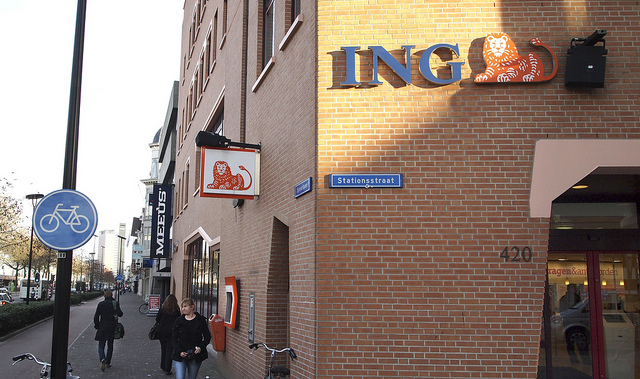The post-corona economy: ‘I don’t see hard cuts happening’
The coronavirus crisis has a tighter grip on the Netherlands in early February than at any time in 2020. But what will the world look like when the coronavirus era is over? And above all: what will the post-corona economy look like? Univers talked about it with Arjan Lejour, full professor of Taxation and Public Finance.

For a moment, there was a sigh of relief at the end of last year. Vaccines were coming; the pandemic would soon be over. But now it’s February 2021, and the Netherlands is still in lockdown, with all the consequences for the economy, even after corona.
“I expect the economy to be about 5 percent smaller in 2021 because of the crisis,” says Arjan Lejour. “That means that economic inequality will be larger consequently. People at the bottom of the labor market, people with flexible jobs, will take the hardest hits, relatively speaking.”
Zombie Companies
Among them are many young adults. People for whom the coronavirus crisis is the second major crisis they are experiencing, after the 2008 financial crisis. The question is: is there a plan in place to give the economy a boost again once the pandemic is over?
“A coronavirus recovery fund has been set up by the richer countries in the EU, such as Germany and the Netherlands, which supports poorer countries during the crisis. And within the different countries as well, certain sectors are financially supported so that they don’t go under.
‘The biggest economic impact of the corona crisis is yet to come‘
“The question of course is: what happens when the lockdown ends and the support stops? Are all those companies going to reopen, or are we going to have a bunch of zombie companies that weren’t actually viable in the first place but were kept alive by the financial infusion?” Lejour wonders.
“You hope, of course, that the economy will reopen and companies will recover once the lockdown is over and everyone has been vaccinated. But things are very quiet right now in terms of bankruptcies. That seems favorable, but there is a good chance that, in fact, after all the measures have been taken, companies will go bankrupt and people will become unemployed.
“Then you get the opposite of what you want, which is economic contraction. That is certainly among the possibilities. The biggest economic impact of the coronavirus crisis is still to come. The final bill is yet to be presented.”
Bridging period
For this, Lejour is not very optimistic about the role the EU will play in stimulating the economy. “I don’t think special things are going to happen there. Governments already put a lot of money into keeping the economy afloat.
“Tens of billions are being spent to support the business world. But that’s for a bridging period. If those people go bankrupt after that, then they go bankrupt. Then unemployment insurance or welfare awaits.
‘Households foot a big part of the bill‘
“We don’t have to count on a Marshall Aid-type plan from Europe. Something like that sounds congenial, but I wouldn’t know who should finance it. Largely, people will have to do it themselves. Nor is it the task of the government and the EU to keep companies afloat.”
In that respect, Lejour says there is a big difference with the economic crisis of 2008. “In that, the banks played the leading role. They were rescued by the government, but that was not just to keep those institutions afloat.
“That was done mainly to keep the payment system going. If that hadn’t happened, everyone would have collected their savings. Then there would have been a much bigger crisis. There is no such situation now.”
Free money
Lejour is not afraid that the scenario that arose after the 2008 crisis will be repeated. Then the bill fell mainly on the working and middle classes. “It’s a little different now. We’ll soon have spent a lot of money, the public debt will increase and it has to be repaid. On the other hand, interest rates are very low now, so the government is actually borrowing for free. As a result, there is a little less need to increase charges and taxes, as was the case during the 2008 crisis.”
In addition, the social trend in 2021 is different than it was in 2008, Lejour believes. “Given the size of the crisis, households will still pay a large part of the bill with income tax and VAT. But we now also think that the business community should contribute a bit more, more than during the previous crisis. I don’t see hard cuts happening for the time being.”






